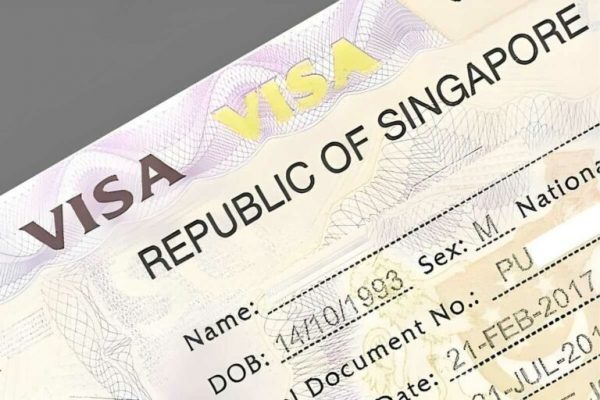Finding a job overseas before you leave your home country is one of the smartest moves you can make. It gives you financial stability, removes a lot of stress, and allows you to start your journey with confidence and a clear plan. Whether you’re planning to move for better opportunities, career growth, or a new life abroad, knowing how to secure a job offer before leaving your country will save you time, money, and uncertainty.
This guide will walk you through each step in a simple, direct way no confusing advice or vague suggestions. You’ll learn how to choose the right country, find companies that actually hire foreign talent, prepare the right documents, and handle interviews and visa steps from wherever you are now. If you follow this process correctly, you’ll improve your chances of getting hired faster and making your international move smoother.
Let’s break it down, step by step.
Choose Your Destination Carefully
Deciding where to apply shapes everything your chances of success, the ease of the process, and how smoothly you settle. Start by narrowing down high-potential countries.

- Analyze job market strength: Start with research. Look up industry reports and job board activity. Is there a demand for your field (technology, healthcare, engineering, finance) in your target country? For example, Germany’s engineering sector constantly seeks skilled professionals, while Canada prioritizes healthcare workers.
- Understand visa and sponsorship rules: Each country has its own visa process. Research government immigration websites like Canada’s Express Entry or Australia’s Skilled Migration Program to learn which occupations are eligible and under what criteria.
- Estimate living and relocation costs: Compare average rents, groceries, utilities, and transportation. Online cost-of-living calculators can help you match expected salaries to local expenses. Factor in one-time costs: flight tickets, temporary accommodation, visa fees, and translation of documents.
- Assess language and cultural barriers: Some countries expect local language proficiency. In Germany, B1-level German can be essential for non-tech roles. Decide whether you’ll learn the language before departure or opt for English-speaking countries where this isn’t required.
Read: Top 10 Easiest Jobs to Secure Abroad in 2025
Focus Your Job Search on International Opportunities
Target the right channels and roles companies already hiring across borders save you guesswork and time.
Choose global-friendly platforms
- Use LinkedIn filters for “visa sponsorship” or “relocation assistance.”
- Indeed and Glassdoor allow keyword searches like “work permit” or “visa support.”
- Visit remote-work hubs like We Work Remotely, Remote OK, and AngelList for globally distributed teams.
Spot relocation-ready employers
- Look for mentions of global hiring, remote-first operations, or relocation packages in job descriptions.
- Follow large multinational firms (e.g. Amazon, Deloitte) on career portals; they often have dedicated programs.
Use Google Alerts
- Set alerts like “visa sponsorship engineer Germany” to stay updated new roles appear daily.
Subscribe to newsletters
- Specialized newsletters for global job seekers deliver leads directly. Examples include Tech & Travel and Global Career.
Tailor Your Resume and Cover Letter for International Hiring
A localized, relevant application immediately tells recruiters you know their market and that you’re ready to move.

Resume format matters
- Use U.S./UK formats with clear headings and concise bullet points for English-speaking jobs.
- For Europe, consider the Europass layout or regional standards.
Localize language and keywords
- Avoid generic statements like “responsible for.” Instead say, “Led a cross-functional team to deliver a fintech application in Java.”
- Mirror terminology from local job posts: if they say “graduate program,” use the same phrasing.
Highlight relocation readiness
- Add a line: “Available for relocation to Toronto by September 2025; open to remote onboarding.”
- Clarify visa status: “Willing to obtain sponsorship,” or “Eligible for Canadian work permit.”
Cover letter structure
- Opening: “I am applying for X role in city Y, ready to relocate by date Z.”
- Body: Describe your experience in cross-border collaboration, remote teamwork, or global projects.
- Visa statement: “I require visa support but am prepared to initiate the process upon receiving an offer.”
Read: 3 Important Skills for Immigrants in Canada
Target Jobs Offering Visa Sponsorship
Intro: Applying only to roles that support work permits removes guesswork and delays.
Search strategically
- Use queries like “visa sponsorship jobs United Kingdom” or “Canada LMIA software engineer.”
- On LinkedIn, combine filters: location + keywords like “relocation package.”
Validate company policies
- Visit employer websites to see if they have information on international hiring or visa support.
- Email HR or recruiters to confirm policies e.g., “Does your company sponsor work permits for international candidates?”
Check government-approved employer lists
- Many countries publish lists such as the UK’s list of Sponsor License holders or Australia’s list of licensed sponsors. Applying to those companies adds confidence.
Build and Leverage an International Network
Support from insiders makes a huge difference. Referrals and local advice open doors faster than applications alone.
Engage on LinkedIn
- Send personalized connection requests: “I’m a web developer based in Nigeria, exploring relocation to Canada. Your insights on sponsorship would be invaluable.”
- Comment and engage with posts from companies you target this raises your profile with recruiters.
Join community groups
- Facebook and Slack groups like “Expats in Dubai” or “Germany Tech Job Seekers” offer leads, tips, and moral support.
Attend online events
- Participate in virtual job fairs often hosted by embassies, universities, industry associations.
- Look for webinars with topics like “Visa process explained” or “Hiring process at Company X.”
Request referrals
- After establishing a connection, ask: “Would you be open to referring me to the hiring team?” Even one referral can significantly boost your chances.
Prepare to Impress in Online Interviews
Intro: A smooth, professional interview experience shows you’re ready to join a global team even from far away.

Plan around time zones
- Use scheduling tools like Calendly that show your availability in their local time.
- Offer early morning or late evening options if it matches their working hours best.
Research local interview norms
- In the U.S., expect behavioral questions. In Germany, you’ll face detailed technical discussions.
- Prepare both competency-based (e.g., STAR technique) and technical responses.
Test your tech
- Simple but crucial: good webcam, lighting, quiet background, stable internet, working headphones.
Communicate relocation readiness
- Clearly state when you can start, how you’ll handle relocation.
- If asked about availability, say “I can begin paperwork immediately and relocate within 4 to 6 weeks after offer acceptance.”
Read: Level Up Your Skills: Top 5 Free Online Certifications to Boost Your Resume
Navigate Legal and Visa Steps Once You Have an Offer
Accepting an offer is just the beginning you’ll need to move confidently through the visa and legal process.
Get a full written contract
- Confirm salary, role, start date, and visa sponsorship in writing. Do not proceed without clarity.
Employer initiates visa filing
- This might be a sponsorship certificate (e.g., UK Certificate of Sponsorship) or employer registration with immigration authorities.
Prepare required documents
- Commonly needed: valid passport, academic transcripts, professional references, police clearance, medical exam.
- If translations or notarizations are required, do these early.
Submit the visa application
- Fill out online forms accurately, pay fees, attend biometrics or interviews.
Post-approval logistics
- Passport gets stamped; next step is booking flights and arranging housing or temporary lodging in your new city.
Securing a job offer before you move abroad isn’t a quick fix, it’s a series of smart, intentional steps. By choosing your destination wisely, targeting visa-friendly roles, customizing your application, leveraging networks, preparing thoroughly for interviews, and navigating legal steps carefully, you set yourself up for success.
Every step builds confidence, reduces risk, and positions you as a strong candidate. If you want support resume review, cover letter feedback, or mock interviews feel free to ask. I’m here to help you land that offer and start your journey.


